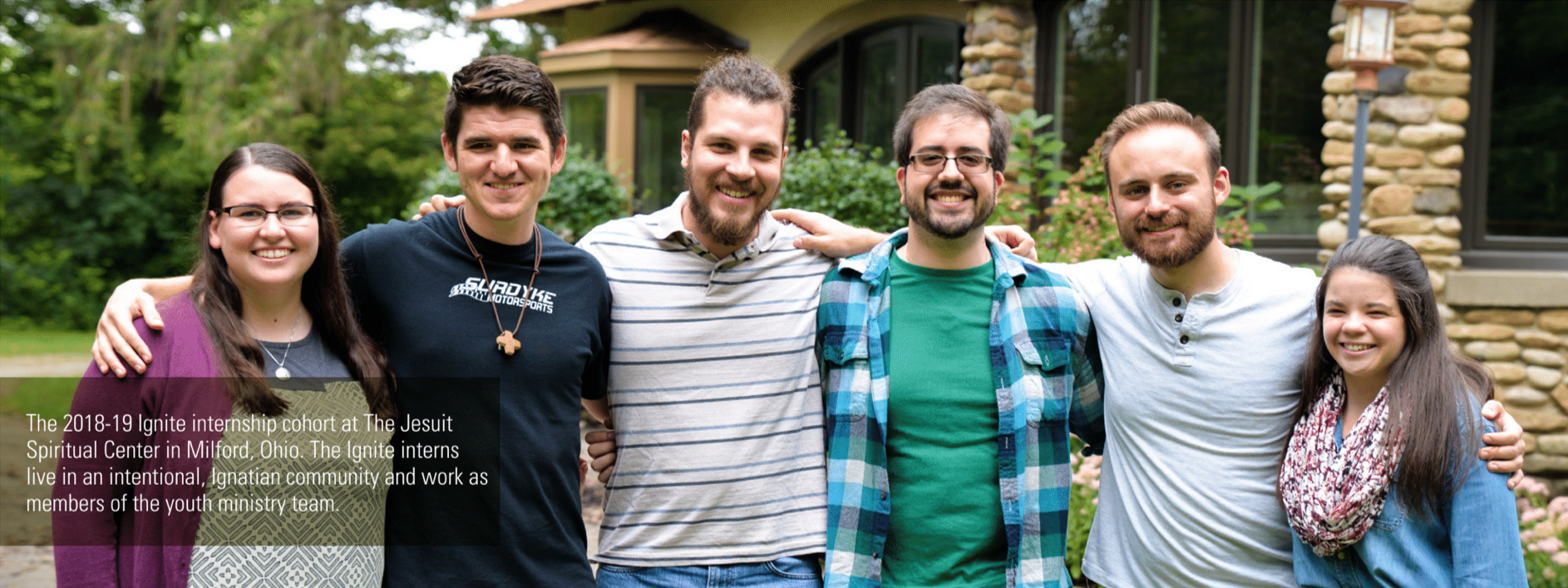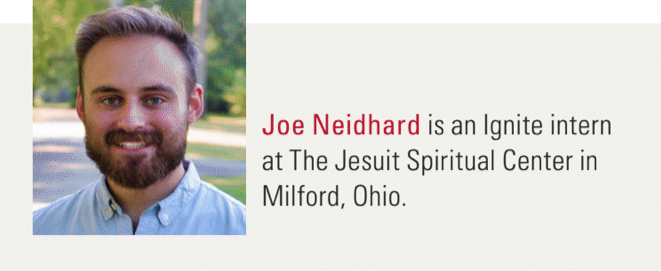Magazine
Igniting the Faith
By Joe Neidhard
For the past year, I have lived with three fellow interns learning and practicing youth ministry at The Jesuit Spiritual Center in Milford, Ohio, through the Ignite residential internship. I’m not sure what I was expecting the other interns to be like before I arrived, but I assumed that for the most part they would be like me: twenty-something Catholics with college degrees. And truth to reason, they were all “like me” in that respect. But being part of a small, intentional community of laypeople, I never focused on how my housemates and I are similar. Community living highlighted our idiosyncrasies in ways that seemed inescapable.

The 2018-19 Ignite internship cohort at The Jesuit Spiritual Center in Milford, Ohio. The Ignite interns live in an intentional, Ignatian community and work as members of the youth ministry team.
For instance, while I’ve always found most contemporary Christian music cloying, I live and work with someone who gets deep spiritual fulfillment from the music of Tenth Avenue North and Needtobreathe. Likewise, I grew up going to a progressive liturgy where the congregation held hands and stood during the Eucharistic prayer. Meanwhile, I have different housemates who wear veils to Mass and receive communion on the tongue.
Our differences are often more significant than those two examples, but just as often are much, much pettier. What’s been fascinating is that our differences always proved most surmountable when we’re all practicing contemplation in action.
The difficulties of our shared work always manage to outweigh the difficulties of our clashing tastes and personalities. We don’t care that we all have different opinions on music when everyone’s worked 60 hours on retreats the past week. Instead, we each will sit at our dining room table, drinks in hand, knowing that there’s only a handful of people who fully understand the effort we’ve just exerted, and they’re all sitting at that table.
Youth ministry has its many stresses. There are questions we are forced to deal with on micro– and macro–level issues. How do you leave a lasting impact on each of the thousands of students you meet on retreat each year? How do you respond when a teen asks you a question about the Church’s abuse cover-up? What is the best way to engage a discussion group that doesn’t want to talk?
Our community grapples with these questions constantly, but they’re what unify us. In many ways, the pressures of our job make our gathering at the end of a long day like a second communion for us. We are together in ministry, and though our work may be challenging, it has a way of forcing us to practice Ignatian practicality at home. Though there is debate, we know who does which chore and when. There is no need to complicate these tasks with ambiguity. We live to serve each other.
Likewise, we grow in faith together. The different styles of worship with which we are each familiar become less differences and more signs of the diversity of our collective experience. Our idiosyncrasies fortify us and act as starting blocks for growth.
